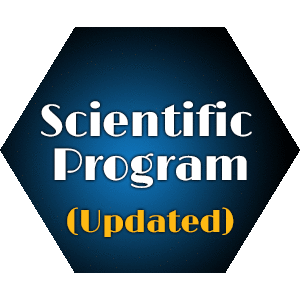
Nadège Samlan Okémy
Marien Ngouabi University, Congo
Title: Therapeutic effect of aqueous extract and ointment of Ageratum conyzoides L. on arthritic rheumatoid induced in wistar rats.
Biography
Biography: Nadège Samlan Okémy
Abstract
Medicinal plants are staging a comeback and herbal “renaissance‟ is happening all over the globe. The plant products today symbolise safety in contrast to the synthetics that are regarded as unsafe to human and environment (1). The present study deals with the in vitro anti-inflammatory and anti-arthritic activity in aqueous leaf extracts and ointment of Ageratum conyzoides. The previous phytochemical analysis of aqueous extract of Ageratum conyzoides has indicated the presence of several active phytochemicals such as flavonoids, saponin, tannins, steroids and alkaloids which could support the anti-inflammatory effect (2, 3).
The toxicology and pharmacology studies proved that, aqueous extract and ointment of this medicinal plant aren’t toxic, no irritation on the skin and rat’s eye. In effect, they showed a significant reduction (p < 0.001 at 100 and 200 mg by wistar rat weight with aqueous extract , then 4 and 8 g ointment doses) the volume edema arthritic induced by Freud Adjuvant , under the right posterior paw of wistar rats. Furthermore This extract plant used without dose dependently, in contrary ointment, who appears more effective with 4g. Also extract aqueous and ointment of Ageratum conyzoides blocked the dolour product by inflammation arthritic and shows a significant antioxidant activity (4, 5).
Therefore, our studies support the isolation and the use of active constituents from aqueous leaf extract of Ageratum conyzoides in treating inflammations and associated Rheumatism. The proposed formulation with this aqueous extract is also active in acute inflammation. Finally, these results suggest the possibility of the use this preparation the treatment of acute or chronic inflammatory pathology by the Congolese population.

